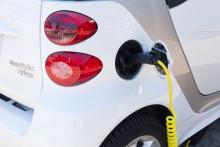It’s hard to know whether to support X/Twitter's downfall or rail against it.
How Musk changed Twitter
While Twitter has a long history of criticism for misinformation and toxicity, it seems to have grown significantly since Elon Musk's takeover.
Key changes Musk implemented that campaigners say have caused an increase in hate speech and misinformation include:
- Cutting staff by 80%, including many moderator roles.
- Removing the ability of users to report ‘misleading information’.
- Reinstating over 1,100 previously banned accounts, including Donald Trump and Tommy Robinson (real name Stephen Christopher Yaxley-Lennon).
- Making the ‘blue tick’ feature, which used to only be available to ‘notable people’ such as politicians, celebrities, experts or journalists, a pay-for feature meaning that far more people can be ‘verified’, making it harder to distinguish which accounts are publishing credible information.
- Declaring the words ‘cis’ and ‘cisgender’ as slurs which result in a user’s removal from the platform.
These changes have allegedly helped contribute to the following impacts:
- Use of the n-word tripling.
- Slurs against gay men rising by 58%.
- Slurs against trans people rising by 62%.
- Anti-Semitic tweets doubling.
- Accounts that consistently publish popular tweets containing links to misinformation receive 44% more interactions.
(Figures above are from the reports linked to, published at various times since Musk's takeover.)
The advertising boycott of Twitter
Twitter has lost half its advertising revenue since Musk’s takeover, with over 500 advertisers stopping spending on the platform. In 2022 the coalition Stop Toxic Twitter, comprised of around 60 organisations, wrote an open letter asking Twitter’s top 20 advertisers to "cease all advertising on Twitter globally" while Musk failed to uphold community standards and content moderation.
Organisations reporting on the rise in hate-speech claim Musk is trying to bully them into silence, including through legal threats. In July 2023 Musk and X filed a lawsuit against one of the coalition’s members, the Center for Countering Digital Hate (CCDH), blaming the non-profit for ‘tens of millions of dollars’ in lost advertising revenue. It lost this lawsuit in March 2024, but X continues to sue other organisations, for example Media Matters which published a report showing advertisements positioned next to hateful content. Musk has also tried to sue a group of advertisers and major companies, accusing them of unlawfully agreeing to "boycott" the site, including Unilever and Mars.
No organisation appears to be calling for individuals to close their Twitter accounts, but there have been reports of Labour MPs leaving the platform alongside celebrities including Elton John, Jim Carey and Whoopi Goldberg. In addition, several organisations have paused their accounts, such as the National Library of Scotland and the Chartered Institute of Library of Information Professionals Scotland.








